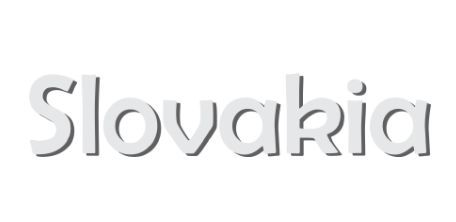
Slovakia or officially known as the Slovak republic is a landlocked state situated in Central Europe. Slovakia shares its border with Czech Republic and Austria to the west, Ukraine to the east, Poland to the north and Hungary to the south. Bratislava is the capital and the largest city of Slovakia. Vah is the longest river and Cierna voda is the shortest river. Slovakia consists of hundreds of caves and caverns that are present under its mountain, out of them only fifteen are open to the public and the tourists. The name ‘Slovak’ is derived from the Slovakian term for Slave: Slovan.

Slovakia has four seasons throughout the year: Spring, Summer, Autumn and Winter, each lasts for three months. The climate in the country is moderate as Slovakia lies in the northern moderate climatic zone. The key factors that influence the weather conditions here is its altitude and the winds circulating from the west. The spring season usually starts around 21 March and chilly mornings are experienced during this season. The average temperature is 9°C in the month of April, around 14°C in May and 17°C in June. During summer, in the month of June the temperature rises above 30°C. The hottest weather is experienced during the month of July and it is comparatively hotter mainly in the lowlands. Rainfall and winds can be experienced in the autumn which start around 23 September, the weather usually drops around 14°C and drop as low as 3°C in the month of November. The winter starts in the mid of December which comprises of cold and snow where the temperature goes down to -5°C in the lowland area and in the mountainous regions it goes extreme by dropping as low as -10°C.

The Slovakian constitution guarantees religious freedom to all, to practice and preach any religion according to their beliefs and culture. There is no official religion of the country. Most of the individuals were baptized during their childhood itself. The largest religion in the country is Roman Catholic consisting of 68.9% of the total population. The rest comprise of Lutherans (6.9%), Greek Catholic (4.1%), Protestant reformers (2%) and Orthodox Church (0.9%). The second largest group comprises of the atheists (non-religious groups) that consist of 13% of the total population. People in the country are religious but are often seen going to the churches only during the festive season.

The official and most commonly used language by the people of Slovakia is Slovak; it has its root from the Slavic language family. Different languages are used in different regions of the country. In the western region Slovak and Czech is more commonly used among the people as it is easier for the people to understand both the languages. Russian, Ukrainian and Belarusian are widely used in the eastern region of the country. In the southern part Serbian, Croatian, Slovene, Bulgarian and Hungarian is used by the people as a medium of communication. Among the foreign language Czech is widely used by the people. In the secondary education system, the students take on two foreign languages, along with their official language Slovak.

Slovak
The staple diet of the people in this country exhibits regional variation. But their diet is generally based on dairy dishes, roasted meats, smoked meat (sausages), soups, stewed and boiled vegetables and stewed fruits. Among their typical dish is sheep cheese with small dumplings known as ‘bryndzove halusky’. In the rural regions of the country, five meals are consumed in a day: breakfast followed by lunch, and then snacks in the evening and then ending with dinner. Bread is their favourite and is usually consumed at every meal. Soup is generally served as the first course during the lunch along with some of the spicy meat dishes. A hot cup of tea with sugar is among their favourite hot beverage. Their evening meal consists of bread, vegetables and cheese.

Bryndzove halusky’
Due to the growing sector in almost every field, Slovakia is an industrialized nation. The former collective farms have now been transformed into agricultural co-operatives. The major crop production in the country includes grains, wheat, rye, barley, potatoes, and sugar. The revenue generated from the agricultural sector accounts for 5% of GDP. The other agricultural production includes fruits, cattle and wood products. Over the years, there is a major growth in the tourist sector as the revenue generation has increased due to the openings of hotels, spa, car rental firms and ski-resorts. Private retail stores too are opened with the help of foreign sector. The major industries account for around 40% of the GDP that include metal industries that produce metal and metal products. The other industries that help in revenue generation are fossil fuels (oil, gas and coke), chemicals, ceramics, machinery, paper, rubber products, food and beverages, vehicle production and nuclear fuel. Slovakia majorly exports machinery, transport equipments and raw materials to Germany, Austria and Czech Republic

Slovakia has a poor to an average health care system for the people. Health care facilities are available to its citizen and are free for the Slovak nationals. Highly qualified physicians and doctors are available in the country. Dentists usually provide private health care and are paid a fee according to the service acquired. There are about forty-four hospitals in the country but they all lack new equipments, technology and new improved medical devices. But over the years the conditions are improving and now there are hospitals in all the major towns and cities of Slovakia. Two types of insurances are made available to its citizens: public and private. Health care insurance is compulsory for all the income earners of the country. Employees of every company have to pay 4% of their income, the employers pay 10% of their income and the self- employed pay 14% of their income. Contributions are given by the government to the unemployed, old-age pensioners and job seekers. The state fund also includes treatment by specialists, for childbirth, pregnancy and rehabilitation.


